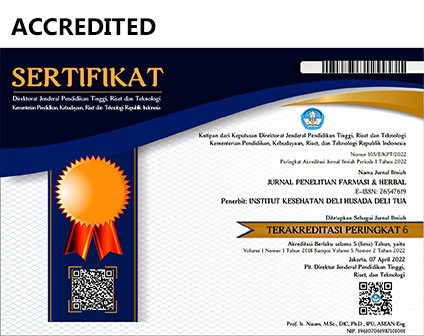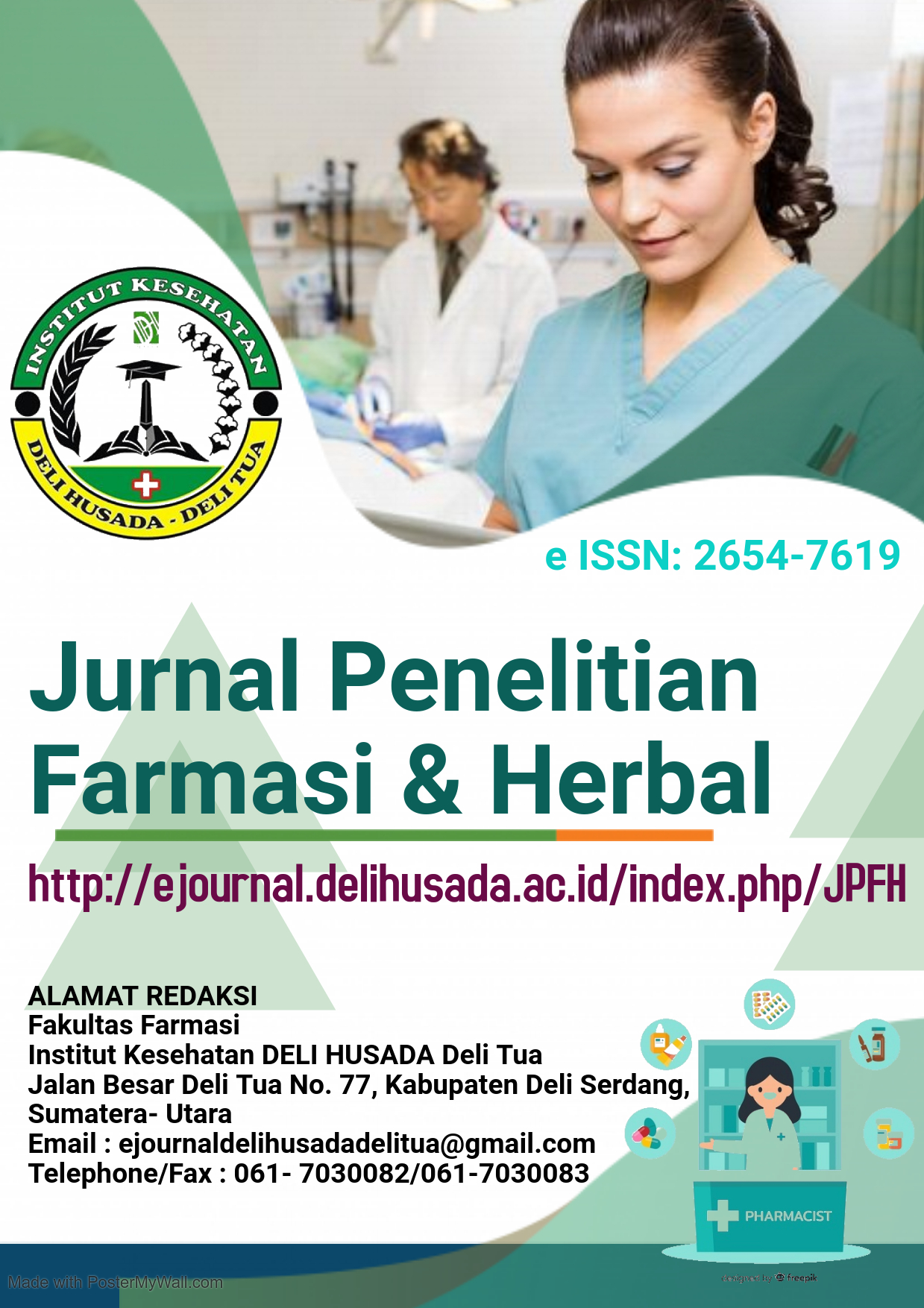Uji Efektivitas Ekstrak Etanol Daun Kersen (Muntingia calabura L.) Sebagai Antihiperurisemia Pada Tikus Putih Jantan Yang Di Induksi Kalium Oksonat
Abstract
Kersen plant (Muntingia calabura L.) is a plant that has many properties and is useful as medicine. Hyperuricemia is a condition where there is an increase in uric acid levels above normal. The leaf part of this plant is widely used by the community as a traditional medicine because of its metabolite compounds. Flavonoid compounds in cherry leaves can reduce uric acid levels through inhibition of the xanthine oxidase enzyme, an enzyme that acts as a catalyst in the oxidation process of hypoxanthine to xanthine and then to uric acid. By inhibiting the work of the xanthine oxidase enzyme, the formation of uric acid will also be inhibited. This study aims to determine the effectiveness of cherry leaf ethanol extract in reducing uric acid levels in male white rats induced by potassium oxonate. This study used an experimental method using 25 male white rats induced by potassium oxonate. The test animals were divided into 5 groups: negative control (CMC Na 1%), positive control (Allopurinol), EEDK dose of 300 mg/kgBB, EEDK dose of 400 mg/kgBB, EEDK dose of 500 mg/kgBB. Measurement of uric acid levels in rats using the point of care testing (POCT) method. All data obtained were analyzed statistically using the One Way Anova test. The results of the analysis showed that there were significant differences between the negative control, positive control, EEDK 300 mg/kg, EEDK 400 mg/kg, and EEDK 500 mg/kg (P<0.05). The most effective dose of cherry leaf ethanol extract as an antihyperuricemia is the EEDK dose of 500 mg/kg BW. There was no significant difference between EEDK 400 mg/kgBW, EEDK 500 mg/kgBW and positive control (P>0.05). Based on the results of the analysis that has been done, it can be concluded that the ethanol extract of cherry leaves has an antihyperuricemia effect in rats.
Keywords: Cherry leaves, Hyperuricemia, Potassium oxonate







